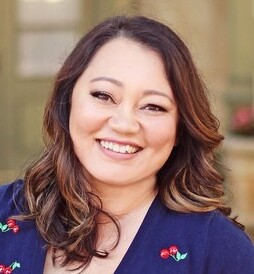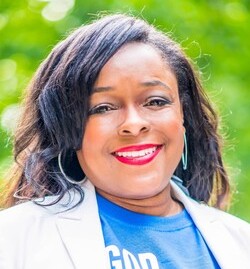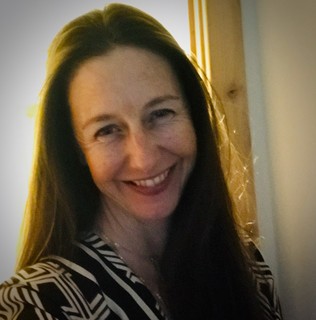
President Joe Biden signed an executive order earlier this year that eased occupational licensing restrictions.
National Public Radio interviewed NASW member Marinelle Reynolds, LCSW, about how the order may affect military families. She is married to a member of the military. The interview explained that licenses vary from state to state, which can hinder workers’ ability to move around. This is especially true for military spouses who hold jobs that require licensing.
“I think that it was a great step in movement towards helping ease a lot of unemployment for military spouses because unemployment affects military spouses at six times the national average, with people of color and recently relocated spouses being disproportionately affected,” Reynolds said.
She noted 34 percent of military spouses in the labor force are actually working in occupations that require a license, and they are 10 times more likely to have to move across state lines. “So, this reduces barriers to unemployment in a meaningful way that can have a major impact on well-being but also economic growth.”

People who place work before their health and happiness may be suffering from internalized capitalism, according to a story at AZ Central in Phoenix.
NASW member Nikita Banks, LCSW, says she sees many clients who struggle with the feeling that they are only contributing to society if they are producing. Internalized capitalism can manifest as burnout, depression and overall dissatisfaction.
“There’s never just a time where you’re able to sit back and smell the roses or even give yourself grace for the accomplishments. The things that you achieved are not enough,” she says in the article. “I don't think that as an American you can escape it.”
To resist internalized capitalism, Banks suggests people celebrate their accomplishments and not compare their journey to those of other people.
“Be kind to yourself and give yourself grace to understand that where you are in your life right now is maybe not where you end up,” she said. “It’s OK to keep pushing, but self-care is important. Watch your internal narratives around what you’ve accomplished, what you’ve achieved and where you want to be.”

NASW member and elementary school therapist Kelly Vagts was quoted in a story posted
at the Moab (Utah) Sun News.
Vagts joined a panel of experts at an event addressing substance abuse, self-harm and suicide in the Moab, Utah, community. Vagts said she “absolutely” sees signs that students are suffering mentally, turning to substances or engaging in unhealthy coping mechanisms in recent months.
“It’s about recognizing the changes in behavior that stay consistent, which parents and teachers can look for,” Vagts says in the story.
“Sometimes as parents, when we see that our children are experiencing things we can’t help them with, it’s a really helpless and debilitating experience,” she said. “There’s also often a bit of embarrassment, thinking, ‘I should be able to do this.’ You can be a really good parent and still have children that need help that you’re not able to give. There’s no shame or embarrassment in that—don’t be afraid to reach out.”

Alcohol may not be a glaring problem in your life, but it’s still a great idea to assess your relationship with alcohol from time to time, says NASW member Ruby Mehta, LCSW, director of clinical operations at Tempest, a digital recovery program.
“Ask yourself, is alcohol interfering with the way you want to live or the things you want to do? It can be helpful to think about the effects of alcohol on the four major quadrants of your life,” Mehta suggests in a story posted at Healthline.com.
The four areas are: mental well-being; physical well-being; relationships; and work and daily routines. If a person decides to change their relationship with alcohol, Mehta advises being “realistic about what you might have to give up to make this change, at least in the beginning.”
For other media stories
like these, visit socialworkersspeak.org